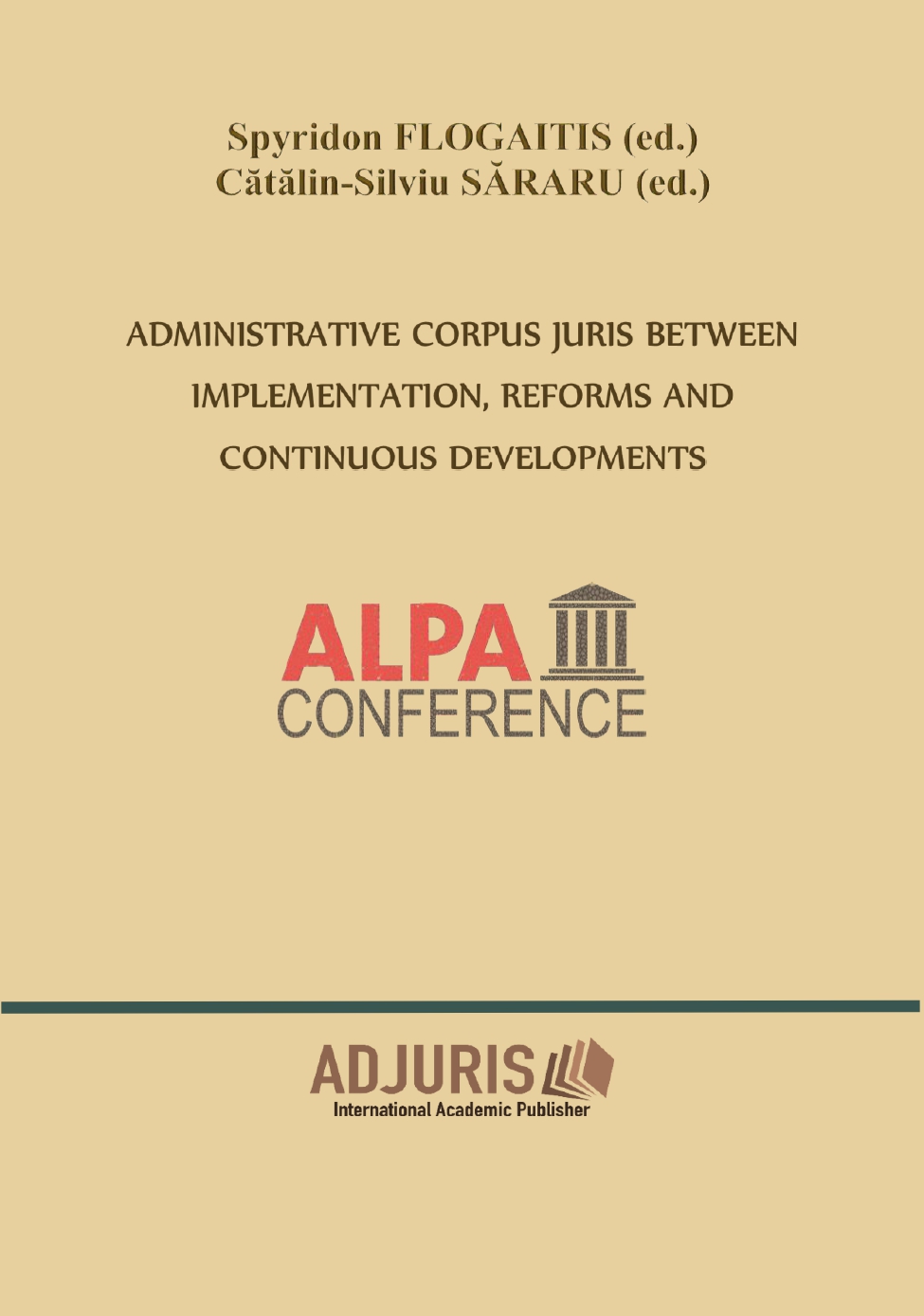The Law on metropolitan areas. The intention of the legislator to regulate one of the forms of association of local communities
The Law on metropolitan areas. The intention of the legislator to regulate one of the forms of association of local communities
Author(s): Gabriel Marin
Subject(s): Politics / Political Sciences, Law, Constitution, Jurisprudence, Public Administration, Public Law, Administrative Law
Published by: Societatea de Stiinte Juridice si Administrative
Keywords: administrative territorial organization; metropolitan areas; principle of subsidiarity; administrative law;
Summary/Abstract: The forms of association of local communities are the intercommunity development association and the metropolitan area. These two forms of association of local communities can be formed into private entities of public interest. In contrast to inter-community development associations, metropolitan areas may have a limited territorial jurisdiction of up to 30 km compared to the county municipality where they can be established. In addition, according to the normative acts in force, metropolitan areas can only be established around municipalities of county or municipalities declared. Although the legislator wished for a difference between intercommunity development associations and metropolitan areas, even though there was no express text of the law that could be applied for differentiation, local public authorities understood to establish metropolitan areas in the same way as intercommunity development associations. Realizing that the metropolitan area can be used to determine financial and social growth within the communities that compose it, the legislator, through the relevant ministry, published on its virtual page, on March 8, for public consultation, on the Metropolitan areas Law, wishing to know the position of the citizens in relation to the changes they wish to make in relation to this form of association of local communities. In the present study, we analyze the provisions of the draft normative act on metropolitan areas quantitatively, showing what essential changes shall be made within this form of association of local communities if the law shall be promulgated, what are the financial and social benefits for the local communities that make up a metropolitan area and what changes could be made to the draft normative act. For the administrative territorial organization of the Romanian state, the legislation on metropolitan areas represented a step toward a modern administrative territorial organization of European type, respecting the principle of subsidiarity more than it is currently respected.
- Page Range: 79-91
- Page Count: 13
- Publication Year: 2022
- Language: English
- Content File-PDF

